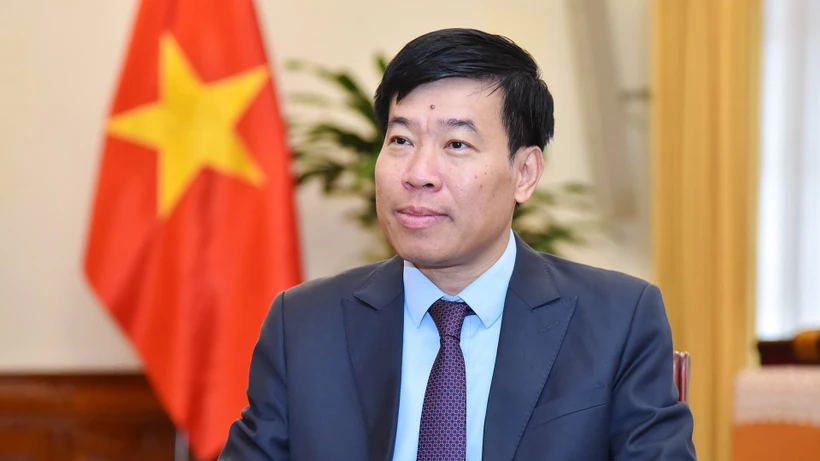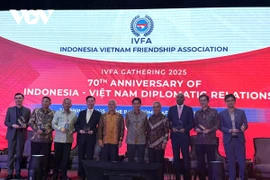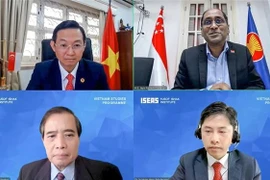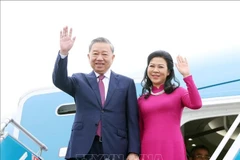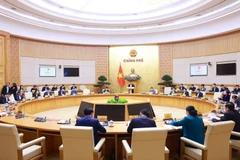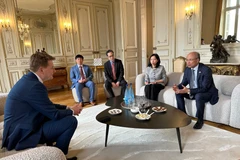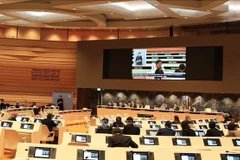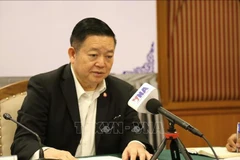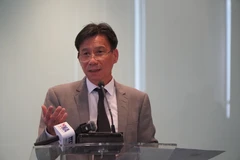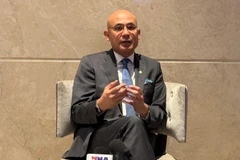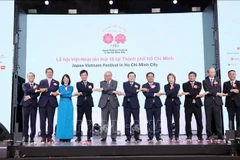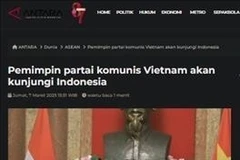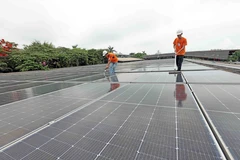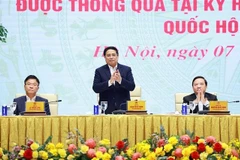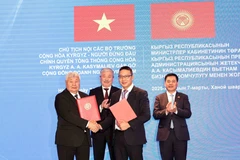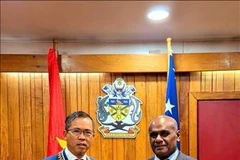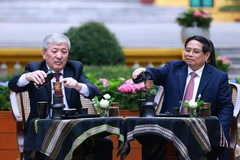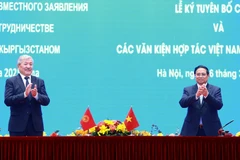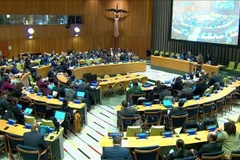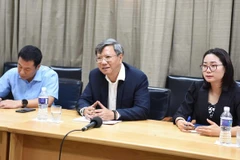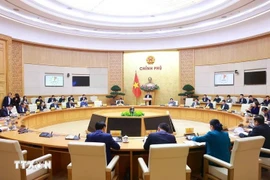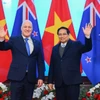Hanoi (VNA) - Party General Secretary To Lam’s state visit to Indonesia, official visit to the ASEAN Secretariat based in the country, and official visit to Singapore from March 9-13 will lay the foundation and open new spaces of cooperation for Vietnam's relations with the two countries, and ASEAN, according to an official.
In an interview granted to the press ahead of the trip, Deputy Minister of Foreign Affairs Nguyen Manh Cuong said that this is the first visit by a Vietnamese Party chief to Indonesia after nearly eight years (since August 2017), and to Singapore after nearly 13 years (since September 2012). It is a historic trip, marking the first time a Party leader of Vietnam has visited the ASEAN Secretariat.
The trip takes place at a time when Vietnam is celebrating the 70th anniversary of diplomatic relations with Indonesia and the 30th anniversary of its ASEAN membership - a historic milestone marking the start of Vietnam's regional and international integration.
It demonstrates the consistent implementation of Vietnam's foreign policy of independence, self-reliance, peace, cooperation, and development, and multilateralisation and diversification of foreign relations. It underscores the importance Vietnam attaches to its relations with neighboring countries in the region, particularly Indonesia and Singapore – its two key partners.
The visit also reaffirms the strategic significance of ASEAN in Vietnam’s foreign policy, further reflecting the proactiveness, responsibility, and innovation of Vietnam, with practical contributions towards realising the bloc's future aspirations, stated Cuong.
The tour will not only strengthen political trust and deepen existing areas of cooperation between Vietnam and the two countries, as well as between the Communist Party of Vietnam and the political parties of the two countries, but also create momentum to explore new and promising collaboration fields, particularly in science and technology, digital economy, green economy, and innovation, he went on. The goal is to set a model for international relations, based on respect for international law, independence, sovereignty, territorial integrity, and the political systems of each country, bringing practical benefits to their people, contributing to the development of each country and Vietnam's progress in the era of the nation’s rise.
Strengthening and tightening bilateral relations between Vietnam, and Indonesia and Singapore, as members of the ASEAN family, and sharing common voices on regional and international issues will also contribute to the overall development of the group, for a united, self-reliant, and developing ASEAN.
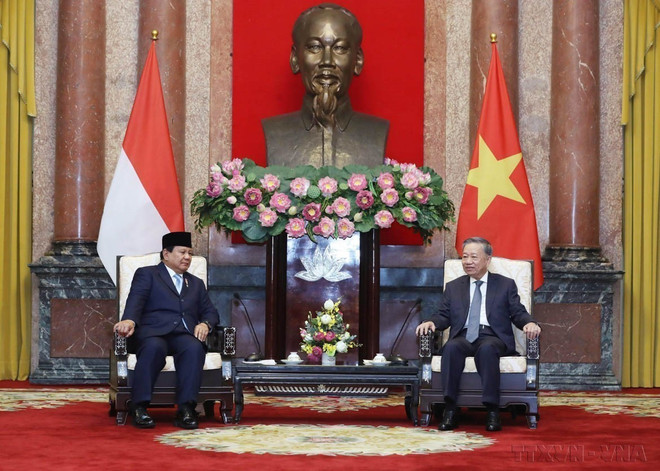
Regarding Vietnam’s bilateral relations with the two countries, the official affirmed that both Indonesia and Singapore are important partners of Vietnam in the region. In recent years, political trust between Vietnam and these two nations has been increasingly strengthened, and cooperation in all areas, through Party, State, National Assembly, and people-to-people channels, has become more closely-knit and effective, and achieved many significant results.
Indonesia was the first Southeast Asian country to establish diplomatic relations with Vietnam in 1955. At present, Indonesia is Vietnam's second-largest trading partner in ASEAN, while Vietnam is Indonesia's fourth-largest trading partner in ASEAN. Bilateral trade has increased fourfold over the past decade, reaching 16.7 billion USD in 2024.
Defence and security cooperation has been strengthened through dialogue mechanisms, exchanges, and joint training. Many effective collaboration agreements have been signed and implemented in areas such as transnational crime prevention, counter-terrorism, and maritime cooperation. Other important fields, such as culture, education, tourism, and people-to-people exchanges, continue to receive significant attention.
Meanwhile, Singapore is currently Vietnam's largest investor in ASEAN and the second-largest in the world. One of the success symbols is the Vietnam- Singapore Industrial Parks (VSIP). To date, there are 18 VSIPs in 13 provinces and cities, attracting over 18.7 billion USD in investment and creating jobs for more than 300,000 workers.
Vietnam has 153 investment projects in Singapore, with a total registered capital of over 690 million USD. Bilateral trade in 2024 was estimated at 10.3 billion USD. Notably, the Green Economy – Digital Economy Partnership between the two countries is opening up many new prospects for bilateral cooperation in key sectors with significant future potential.
In terms of security and defence, the deputy minister said that the two countries have signed a bilateral defence cooperation agreement and are implementing effective cooperation in new security areas such as cyber security and transnational crime prevention. Both countries essentially share common stances on regional and international issues, aiming to build an international order based on international law and global standards. At the same time, Vietnam and Singapore maintain close people-to-people exchanges. Currently, there are about 20,000 Vietnamese people studying, working, and living in Singapore.
For Vietnam’s relationship with ASEAN, Cuong said that the three decades since Vietnam joined ASEAN in 1995 have been a journey filled with many memorable milestones for both sides. Over these 30 years, Vietnam has gradually matured and developed, becoming more proactive and ready to contribute further to common efforts. Its contributions are closely linked to the bloc’s meaningful development, helping strengthen a united, self-resilient, and open ASEAN Community.
Throughout its participation in ASEAN, Vietnam has always prioritised maintaining the unity and solidarity of the grouping, the official added./.
